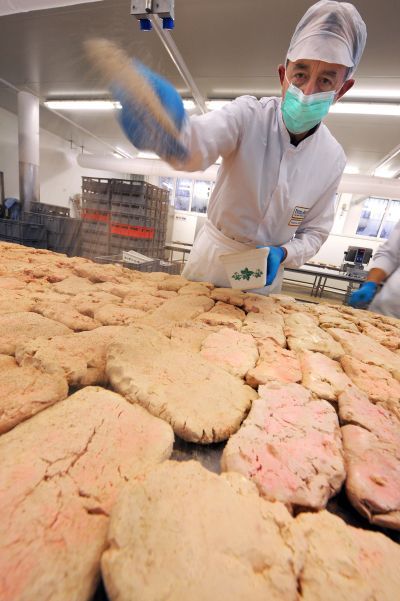Fatter days for Bulgarian, Hungarian foie gras makers

Foie gras makers in Bulgaria and Hungary say they have been able to cushion themselves from the worst of the global economic crisis thanks to low wages and competitive feed prices.
Indeed, the two countries, which are now the largest producers of the delicacy after France, were able to book a rise in output this year, unlike France which is experiencing a sharp drop in both output and demand.
France remains the biggest producer and consumer of fattened duck or goose liver - a dish which is part of the national protected cultural and gastronomical heritage - with annual output of more than 20,000 tonnes.
Production in Bulgaria and Hungary is still only around one tenth of that, but is rising fast.
This year, Bulgaria, which specialises in duck foie gras, is expected to lift total output by 5.0-10 percent to 2,100-2,200 tonnes.
And Hungary expects to produce 1,800 tonnes of goose foie gras and 800 tonnes of duck foie gras.
Hungary is, in fact, has a quasi monopoly on goose foie gras after France phased it out in favour of duck foie gras, which is easier and cheaper to make.
"We were hit much harder by the drought and the subsequent grain shortage in 2007-2008 than by the current financial crisis," said Boris Stoimenov, chairman of the Bulgarian Poultry Producers Association.
"After declining in 2008, production has picked up in 2009."
Plamen Chelebiev, owner of Volex, a Bulgarian company that produces the whole range of duck products, from eggs to several varieties of foie gras, said: "We can survive thanks to the unbeatable price of the labour here, which is four times cheaper than in France."
Willy de Neef is a Belgian whose Bulgaria-based company supplies 800 supermarkets in France and Belgium with four to five tonnes of fattened duck livers per week.
"The crisis hasn't touched us," says de Neef, who believes he has found a new market for mass produced foie gras where customers are ready to accept a lower-grade product for a reasonable price.
He says his production costs in Bulgaria are 20-25 percent lower than in France or Belgium.
Jozsef Magyar, chief executive of Hungarian firm Hungerit, said the sector "isn't performing all that badly - following a somewhat slow first quarter, western buyers have started coming back."
Experts argue that cheap labour and feed and less investment in farms, force-feeding equipment and slaughterhouses, give Bulgaria and Hungary a distinct price advantage over France.
Volex owner Chelebiev said his company had adjusted production to the slump in demand in France and kept its prices three-to-four euros per kilogramme lower than in France.
Michel Colle, a French partner of Volex, admitted that "there has always been some prejudice" in France about the quality of imported foie gras.
But such nationalist sentiments were fading as "food chains see that the quality is the same and appreciate the competitive prices of the imported products."
Bulgaria and Hungary also have another advantage: the birds are fed in collective cages which are cheaper than the single-bird cages used in France.
From 2011, the European Convention for the Protection of Animals Kept for Farming will oblige all producers to use collective cages.
The crisis has encouraged producers in both Bulgaria and Hungary to seek new markets in Russia, Ukraine, Southeast Asia and the Middle East and increase their sales of duck meat and eggs and even feathers.
Join our commenting forum
Join thought-provoking conversations, follow other Independent readers and see their replies
Comments